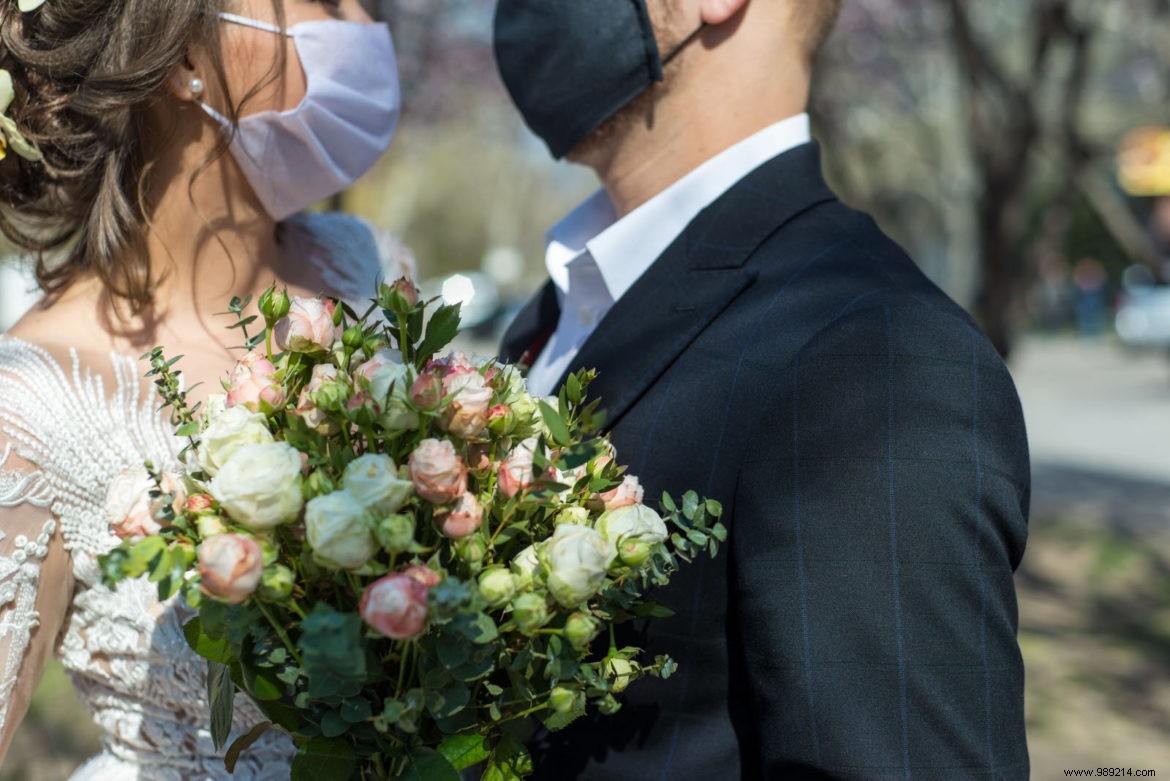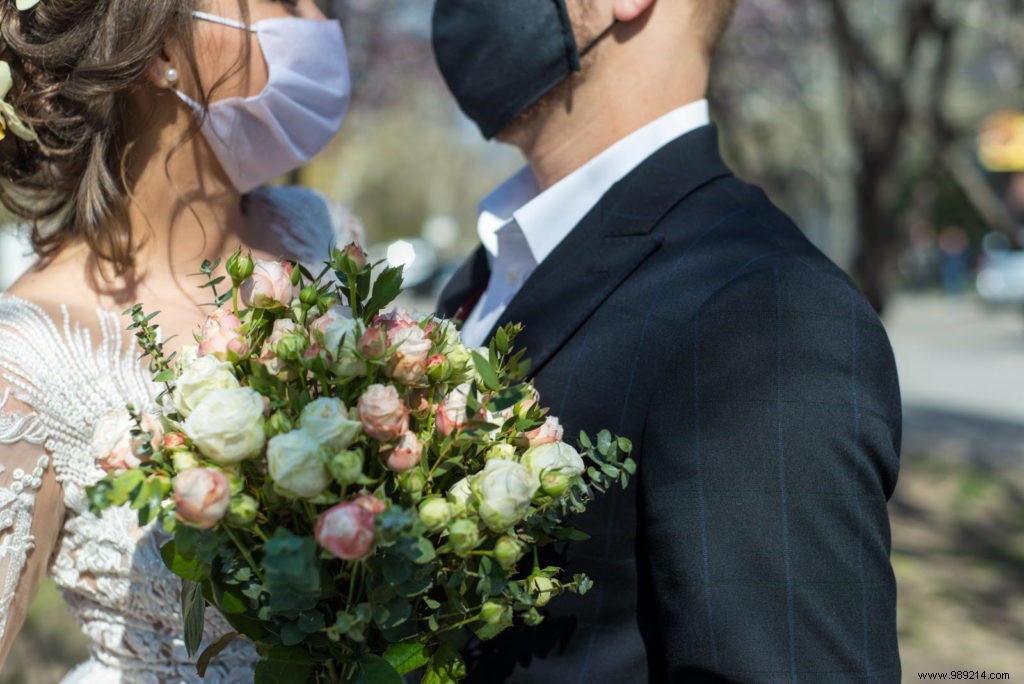
More intimate ceremonies, postponed honeymoons, online weddings… faced with the restrictions imposed by the global Coronavirus pandemic, lovers have to adapt and often rethink the model of traditional weddings. How has Covid-19 influenced the major wedding trends of 2020? How do engaged couples make their love official in these troubled times? We reveal everything in this article.
Contents 1 The simple and intimate wedding, a growing trend 2 Many couples are postponing their wedding 3 The honeymoon:for two or alone? 4 The inevitable rise of virtual weddings 5 Will virtual weddings become trendy?In recent years, ceremonies in small groups have been constantly increasing. Far from overcrowded party rooms and overloaded buffets, the bride and groom prefer more intimate receptions, bringing together a few handpicked relatives. Thus, 44% of newlyweds celebrate their wedding at home.
Unsurprisingly, the pandemic has reinforced this trend:difficult to do otherwise, given that 92 French departments are placed in a “situation of vigilance”. In many regions, gatherings are restricted to 10 people in public spaces and 30 people in party rooms. While in Paris, placed in the maximum alert zone, any festive gathering outside the home is temporarily prohibited. In other words, if you were planning to invite your fifteen cousins, former office colleagues and the neighbor's dog, better wait until the following year!

Faced with these conditions, this is the decision that many couples have taken:to postpone their wedding until 2021. In these chaotic times, reimbursements are often impossible. When we know that French couples spend an average of €10,998 on their wedding, we understand that they prefer to wait! Especially since 37% of them cite the party and the champagne as the primary motivation for putting the ring on their finger... it has the merit of being frank.
If you choose to have a small party at home with your family and friends, fortunately it is possible. Depending on the region, the number of guests can vary from 10 to 30 people. Of course, you have to be vigilant and keep the right gestures. For example, by avoiding inviting people at risk, such as older family members.
Before the pandemic, Japan, Malaysia, and Zanzibar were among the favorite destinations of the French for their honeymoon. Today, many have chosen to postpone their trip to 2021, or to move towards closer places such as in Europe. However, with several countries imposing a quarantine on arrival, the choices are rather limited. Various tests and authorizations are often required in advance.
For those who wish to avoid a thousand hassles, staying close to the ground is a possible solution:France has no shortage of beautiful regions and it is much easier to travel within the borders than outside.
Another possibility? The “solomoon”, or “unimoon”, a booming trend. What is it about ? Quite simply, to spend your honeymoon alone! This unusual practice, supposed to promote introspection and independence in the couple, now has more than 2,000 posts on Instagram – and probably even more detractors. Let's recognize, however, that the concept is not without interest these days:for many couples, forced to live together 24 hours a day during confinement, a little solo getaway would certainly be beneficial.
In any case, the engaged couple are not the only ones to be affected by the impact of the pandemic on their honeymoon. The program "4 weddings for a honeymoon", very popular on TF1, is forced to rebroadcast old episodes, for lack of being able to shoot new ones. To the chagrin of viewers, deprived of entertaining bun crepes. Times are tough for everyone…
One of the unusual trends of recent years? “Disconnected” ceremonies where guests leave their laptops aside. We will therefore taste the irony in the rise of digital weddings, very popular in this period of pandemic. More and more couples are choosing to say “I do” to each other via Zoom. In the United States, luxury hotels are organizing weddings online, with several advantages for lovers:flexibility in dates, reduced expenses, and of course, less risk of contamination among guests. In China, some couples go so far as to invite thousands of guests to attend their wedding.
In France, getting married virtually is not (yet?) legally possible. However, nothing prevents you from being a little creative. For example, by inviting friends to a virtual bachelorette party (or bachelorette party), centered on games or charades. Or even a symbolic toast after the small celebration at the town hall. Nothing replaces the real party, but who says exceptional times says exceptional measures.
To see in time. But one thing is undeniable:the impact of Covid-19 on dating. Before the pandemic, couples mainly met at the workplace (12%) and through mutual friends (11%). Only 9% got to know each other on the Internet. However, if one sector has emerged as a winner from the Coronavirus crisis, it is that of "online dating".
Dedicated sites like Tinder, Meetic or even Bumble have experienced a very strong increase in their visits since confinement. Nothing surprising in this, since finding love in the so-called "traditional" way has become complicated:fewer parties, meetings in smaller groups, and the imposition of teleworking mean that the Internet has become for many a best way to make new acquaintances. A development that we can be happy about, because couples met online have a 25% lower risk of breaking up.